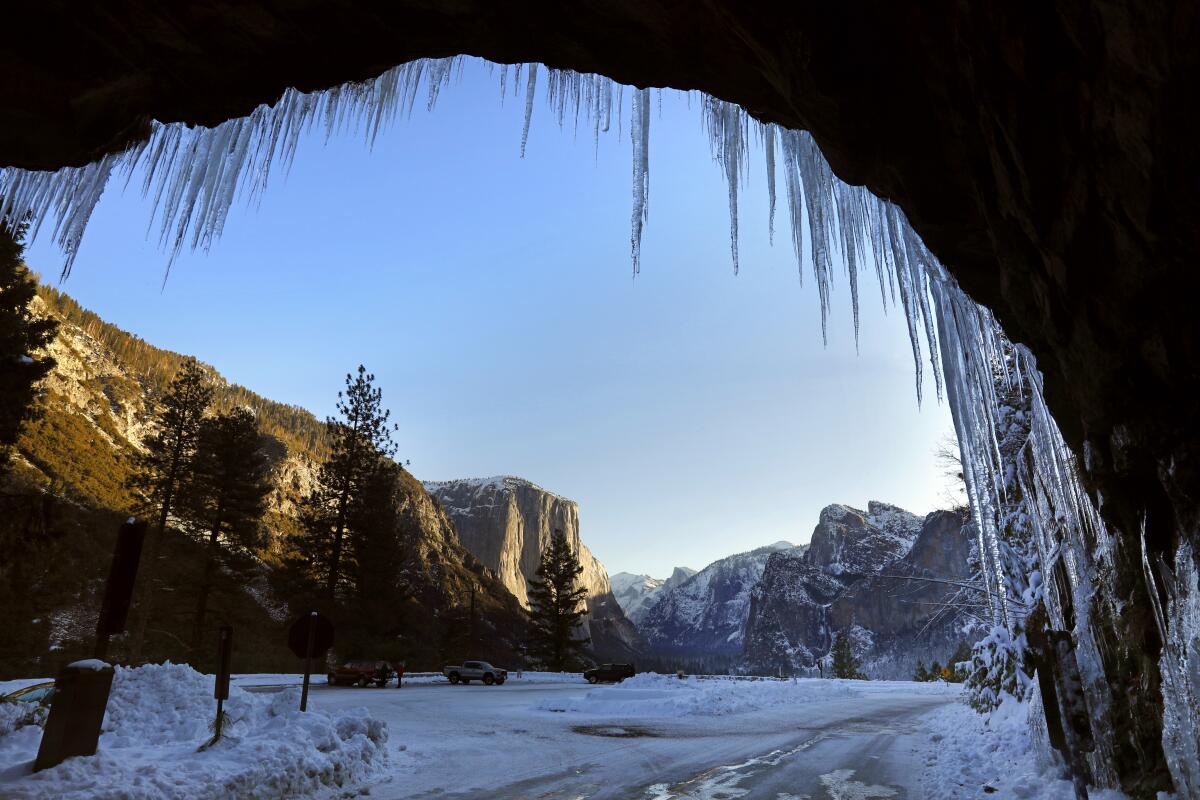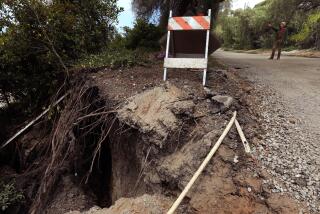2 killed in Yosemite rock slide, a hazard that poses ‘substantial risk’ to parkgoers

Two people died in a rock slide Tuesday at Yosemite National Park, according to the Mariposa County Sheriff’s Office.
The slide occurred between the town of El Portal and the park’s Arch Rock Entrance, the Sheriff’s Office said. Officials have not released the names of the people killed.
El Portal Road, a continuation of Highway 140 into Yosemite Valley, was temporarily closed Tuesday due to the rockfall.
A 2014 report by the U.S. Geological Survey noted that rockfalls “pose substantial hazard and risk to the approximately 4 million annual visitors to Yosemite National Park.”
The USGS began studying the hazards of rockfalls at the park after a 1980 incident on the upper Yosemite Falls Trail killed three people and injured at least 19 others. It was “the greatest mass casualty incident in Yosemite National Park’s history,” the report noted.
More than 1,000 rockfalls have occurred over the last 150 years, according to the park, mostly in winter and early spring, “during periods of intense rainfall, snow melt and/or subfreezing temperatures.”
More recent research has shown that changes in daily temperature and bouts of extreme heat can destabilize rock slabs.
Officials urge Yosemite visitors to be aware of their surroundings, as rockfall hazard zones occur throughout the park, near any cliff faces, and are unpredictable and may happen at any time. They offer these tips:
- If you witness a rockfall from the valley floor, quickly move away from the cliff toward the center of the valley.
- If you are near the base of a cliff or talus slope when a rockfall occurs above, immediately seek shelter behind the largest nearby boulder. After rocks have stopped falling, move quickly away from the cliff toward the center of the valley.
- Pay attention to warning signs, stay off closed trails and, if unsure, keep away from the cliffs.
More to Read
Sign up for Essential California
The most important California stories and recommendations in your inbox every morning.
You may occasionally receive promotional content from the Los Angeles Times.











